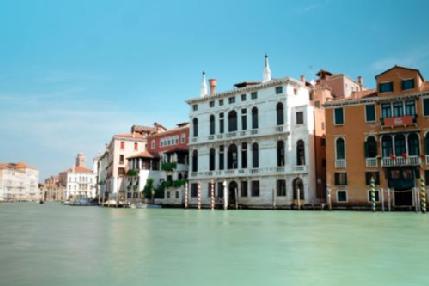University of Warwick opens new Venice home as part of record £100m investment in the arts
The University of Warwick has today announced the opening of a new ‘home’ in the heart of Venice – as part of an ambitious £100m programme of investment in the arts and humanities.
Overlooking the Grand Canal, the space within the Palazzo Giustinian Lolin building, will be used for teaching course modules, seminars and summer schools, benefitting thousands of students, researchers and partners from all over the world.
The move follows the opening of Warwick’s RIBA-award winning, £60m Faculty of Arts Building, which provides a world-class centre for teaching and research, and includes an antiquities room, cinema, theatre studios, a media lab, along with multi-purpose events and exhibition spaces.
Over £42m has also been invested in improving its acclaimed Arts Centre, the largest outside of London, and new arts and humanities courses have been added to its prospectus to meet growing demand.
The overall investment in the arts over the last five years is believed to be the biggest in its history. Funding for STEM has also rocketed and will continue to grow significantly over the coming years.
Warwick’s vice chancellor, Professor Stuart Croft, insisted the future for arts and humanities were positive and would become even more relevant in the AI age.
“The arts and creative industries are one of the UK’s great global success stories contributing more than £100bn to the economy. Internationally the sector supports more than 50m jobs, employing more people under 30 than any other sector.
“The skills, knowledge and experiences gained from these degrees are going to become even more important over the next decade.
“We’re seeing strong interest in our arts and humanities courses, and many of our degrees are hugely oversubscribed. There’s no doubt the demand is there both from students and employers.
“We need to stop talking arts degrees down and start championing their growing value and importance – or we risk creating a self-fulfilling prophecy and end up damaging one of our greatest exports.
“The future isn’t STEM rather than the arts – it’s very clearly both.
“However, we must keep evolving so we reflect the fast-changing needs of society and employers, by offering opportunities to learn from different disciplines to provide a fully rounded education.”
The future will see more integration of arts and STEM, learning skills and approaches from different disciplines. 
Warwick’s innovative Global Sustainable Development undergraduate degree marries up science with humanities in a flexible way – exploring how we communities can work and live in a way that safeguards environmental, social, and economic wellbeing, both in the present and for future generations.
The new Venice base will also be open to a broad range of disciplines and international partnerships – and not just for art subjects.
Warwick first opened a base in Venice in 1967 and is believed to be one of the only universities in the world to have a permanent base in the city.
Dating back to the 17th century, the baroque-style building will provide a once in a lifetime opportunity for students to immerse themselves in the history, art and culture of the city.
Warwick’s ‘Venice Term’ allows history and history of art students to study the Renaissance in situ – to see the Renaissance come alive in the buildings and artworks of Venice, and to experience everyday life in a different culture.
This programme has been a hugely important for generations of Warwick students, and for many it has provided a transformational experience which has shaped their careers and lives.
